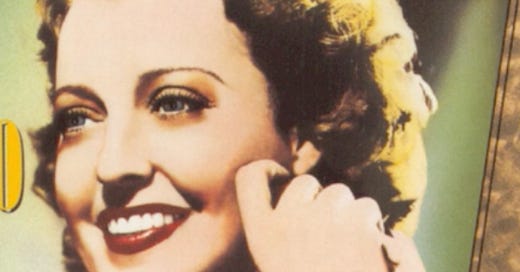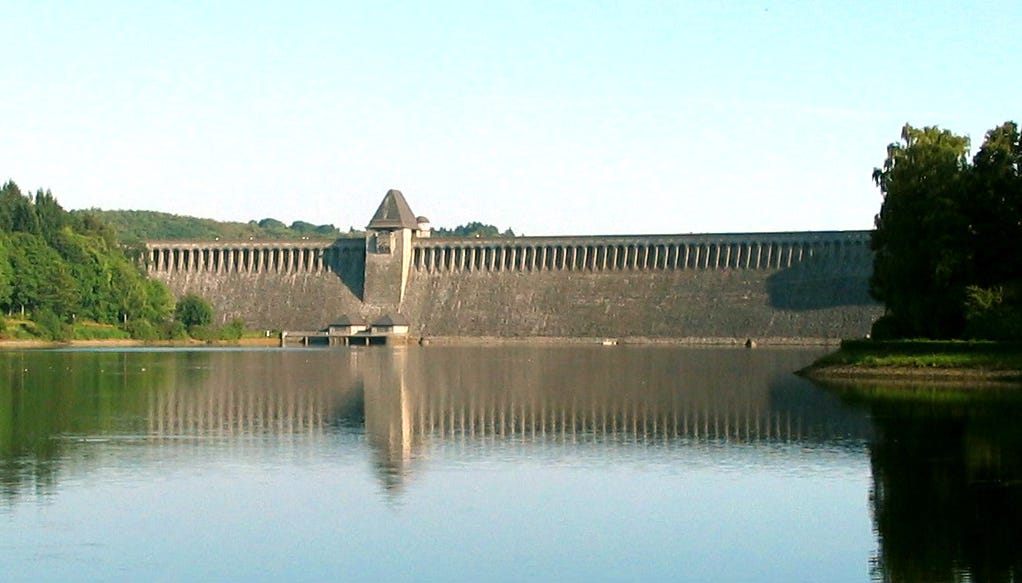The Middle East is farther away than it used to be. It never moved, but it used to be called the Near East. It was felt that that was confusing. Confusing? With what was it confusing? Anyhow, by the time I was hearing about Golda Meir and wars in Yom Kippur and Munich, it was the Middle East, and the east, the Far East, that is, stretches right across Asia until it gets all the way to the Bering Sea, where, at a distance of around 75 km (not that far off the distance from Key West to Havana), the west starts anew. But even calling the Middle East the Near East again wouldn’t actually bring it any nearer. As anyone who’s ever studied quantum physics knows, things only exist when you actually look at them. So, whether on a map or in reality, the Middle East, the Near East, the Levant, they’re exactly there where they always were: beyond the blue horizon.
In 1939, Britain declared war on Germany, and it took five years to rid the world of Hitler and, perhaps more painfully for my mother, it took until September 1953 to rid Britain of sugar rationing: just in time for her first wedding anniversary.
During wartime in Glasgow, she and a friend called Nancy had met in town and stood chatting, oblivious to the world at war, on a Sauchiehall Street corner, when Nancy became aware of a queue of folk lined up behind them. “Can we help you?” they enquired. “Y’are waitin’ on the sweet shop openin’?” came a reply. The two girls turned, and only then realised they had been standing in front of a confectioner’s: these stores only opened for an hour or so each day, given the very little produce they could sell with the rationing. The explanation to the waiting line that they’d had no idea they were standing by a confectioner’s was not met with good humour by the disgruntled sugar-addicts of Cowcaddens.
Sugar rationing is probably one of the few good aspects of a declaration of war, but, whether it was the sugar shortage or the war itself, my folks never had much yearning to visit Germany, although Scots neighbours of ours raved about the mediaeval tweeness of Hamlyn and the Romantic Road. It wouldn’t be until I myself was established in North-Rhine-Westphalia that they paid their first and only visit to Germany.
My father was an ex-Royal Air Force pilot and I took him and mum to visit the Möhne Dam, site of the famous Dambusters campaign, which had used the very aeroplanes my father had flown: Avro Lancasters. We’d enjoyed a copious lunch on a patio restaurant with fresh sparkling beer and good cheer in some old town. But, up in the Sauerland visiting this pleasure reservoir and reading the plaques commemorating the attack by Britain on the industrial infrastructure of the River Ruhr, a somewhat macabre feeling crept over me. There was my father, intrigued to see the site of a heroic act by the brave pilots of Britain, acted out against the innocent civilians of the Ruhr Valley—just like the innocent civilians surrounding us and wheeling pushchairs and prams past us whilst enjoying that fine summer’s day, just as we were.
John Cleese coined a phrase in his TV series Fawlty Towers, “Don’t mention the war,” and it’s astonishing how often the phrase sprang to mind as my parents and I spent a happy week in the German sunshine together. At one and the same time, mum and dad displayed sentiments of magnanimous victors’ understanding (nay, condescension), whilst bristling at certain ideas—such as Nazism and concentration camps.
Though they never said so, their vacation in Germany had a side to it that was a trial for them. With them aged 12 and 13 at the war’s start and 18 and 19 at its end, the Second World War robbed my parents’ of their teen age. There was unspoken resentment, and it is understandable that, having taken the decision to stand fast against Germany, the victors, for whatever they won, should stand fast by their decision, even post-war. Britain had declared war on Germany, after all.
Image: Von Dominik Schäfer - Eigenes Werk, CC BY-SA 3.0 de, https://commons.wikimedia.org/w/index.php?curid=12051731
It isn’t easy these days to find a kind word for Russia in Ukraine. There is resentment aplenty there, too. And that is also understandable. This is not the Basque question, which has long since been put to bed; nor the secession of Catalonia; nor the murmuring of a reunification of Ireland. Ukraine is the story of a country that has been forbidden to exist, and that is quite a different slap in the face, to which another cheek can hardly be turned. Ukrainians have been treated with dreadful disregard and contempt, and a gulf has opened up between them and their neighbours that will take an eon to heal. Before the invasion of Ukraine, I had signed up to the Russian cultural outreach in Belgium and attended some of their online activities during the pandemic. After the invasion, I bristled when their e-mails arrived. Just as my folks had bristled at the idea of visiting Germany.
Looking forward, I wonder what it will be that I will next bristle at, with hackles stood high on the nape of my neck. Which of today’s aggressors will induce in me the greater revulsion. How long the eon will be before the reaction’s automaticity abates.





Thought provoking ideas, Graham. It is odd, for one day to "hate" Germany and all things German and the next day to view them as friends. But if we look at the history for all continents occupied by Homo sapiens, we find the same thing - tribes hat each other, tolerate each other, defend each other, help each other, and hinder each other. I suppose all mammals are the same. The problem comes when some of us (me) keep insisting since we are all the same animal we should attempt to get along peacefully. Maybe that is not a possibility